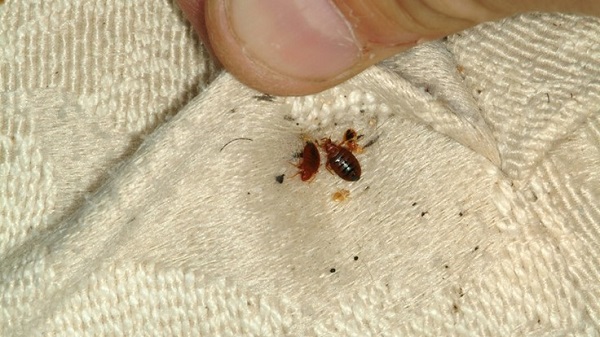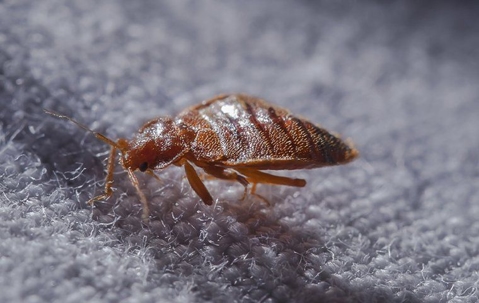Bed Bug Exterminator Houston Treatment: Comprehensive Bed Bug Solutions
Bed Bug Exterminator Houston Treatment: Comprehensive Bed Bug Solutions
Blog Article
Effective Pest Control Steps to Protect Your Yard and Plants
In the world of horticulture, the harmony of a well-tended yard can commonly be interfered with by unwanted pests that endanger the wellness and vitality of plants. As garden enthusiasts strive to preserve a prospering outdoor space, the challenge of pest control becomes an important facet of their horticultural endeavors. Applying effective bug control measures not just safeguards the garden's aesthetic charm but also plays a critical duty in protecting the plants' well-being. By discovering a variety of methods that include all-natural repellents, advantageous bugs, companion planting, DIY options, and environmentally-friendly pesticides, gardeners can navigate the intricate globe of insect management with precision and care.
All-natural Bug Repellents

Another reliable natural insect repellent is diatomaceous earth, a powdery substance made from fossilized aquatic microorganisms. Diatomaceous planet works by physically harming bugs with its abrasive texture, making it an outstanding option for regulating insects like slugs, beetles, and caterpillars. Furthermore, growing buddy plants like marigolds, lavender, or basil can aid fend off parasites because of their solid scents or natural chemical compounds.
Beneficial Pest for Pest Control

One more beneficial insect is the parasitical wasp, which lays its eggs inside insect bugs, at some point eliminating them. Ground beetles are exceptional for controlling caterpillars, snails, and slugs. Hoverflies, typically incorrect for bees because of their similar appearance, feed upon aphids, thrips, and caterpillars.
To bring in valuable bugs to your garden, you can plant a varied range of blooming plants, such as dill, fennel, and yarrow, which supply nectar and plant pollen for grown-up insects. Additionally, avoid using broad-spectrum chemicals that can damage both harmful and beneficial pests. By developing an inviting environment for these advantageous pests, you can reduce the demand for chemical pesticides and promote a much healthier, much more balanced yard ecological community.
Buddy Growing Approaches
When intending to improve the efficiency of helpful insects in your garden for all-natural insect control, considering companion planting strategies can further maximize the environment balance. Friend planting entails tactically placing specific plants following to each various other to optimize their common benefits, such as discouraging bugs, bring in valuable insects, or enhancing nutrition uptake - bed bug exterminator houston near me. One prominent example is growing marigolds along with tomatoes to repel nematodes and other hazardous bugs while likewise attracting pollinators
Additionally, visit this site incorporating fragrant herbs like basil, mint, or rosemary in between vegetable rows can assist prevent parasites with their strong scents. One more efficient strategy is growing blossoms such as sunflowers, zinnias, or universes to bring in pollinators like and butterflies, which in turn can aid in pollinating your vegetables and fruit plants. Moreover, planting trap plants like nasturtiums can draw away insects far from your major crops, serving as sacrificial plants that protect your valuable produce. By executing buddy growing techniques, More about the author you can develop a varied and harmonious garden ecosystem that normally controls bugs while promoting plant wellness and performance.
Do It Yourself Pest Control Solutions
To successfully manage insects in your yard, implementing diy parasite control solutions can be an economical and eco friendly method - bed bug exterminator houston near me. Setting up physical barriers like row covers or netting can additionally protect against parasites like caterpillars from damaging your plants.
Friend growing specific herbs and flowers like marigolds, basil, and lavender can aid ward off bugs and bring in advantageous pests. By including these DIY insect control remedies into your horticulture routine, you can safeguard your yard and plants without depending on extreme chemicals.
Environmentally-Friendly Pesticides

An additional effective choice is diatomaceous earth, an all-natural material made from fossilized water organisms, which can be sprayed around plants to regulate slugs, snails, and various other crawling pests. In addition, insecticidal soaps and oils originated from plant-based sources serve for regulating soft-bodied parasites like aphids, mites, and whiteflies.
Conclusion
To conclude, efficient insect control actions such as all-natural repellents, helpful insects, friend planting strategies, do it yourself options, and environmentally-friendly pesticides are crucial for shielding your garden and plants. By implementing these approaches, you can avoid damages caused by parasites and maintain a healthy a knockout post and balanced and growing yard ecological community. It is crucial to consider the long-lasting impact of utilizing chemicals and choose more lasting and green alternatives to make certain the wellness and health of your plants and the environment.
Report this page